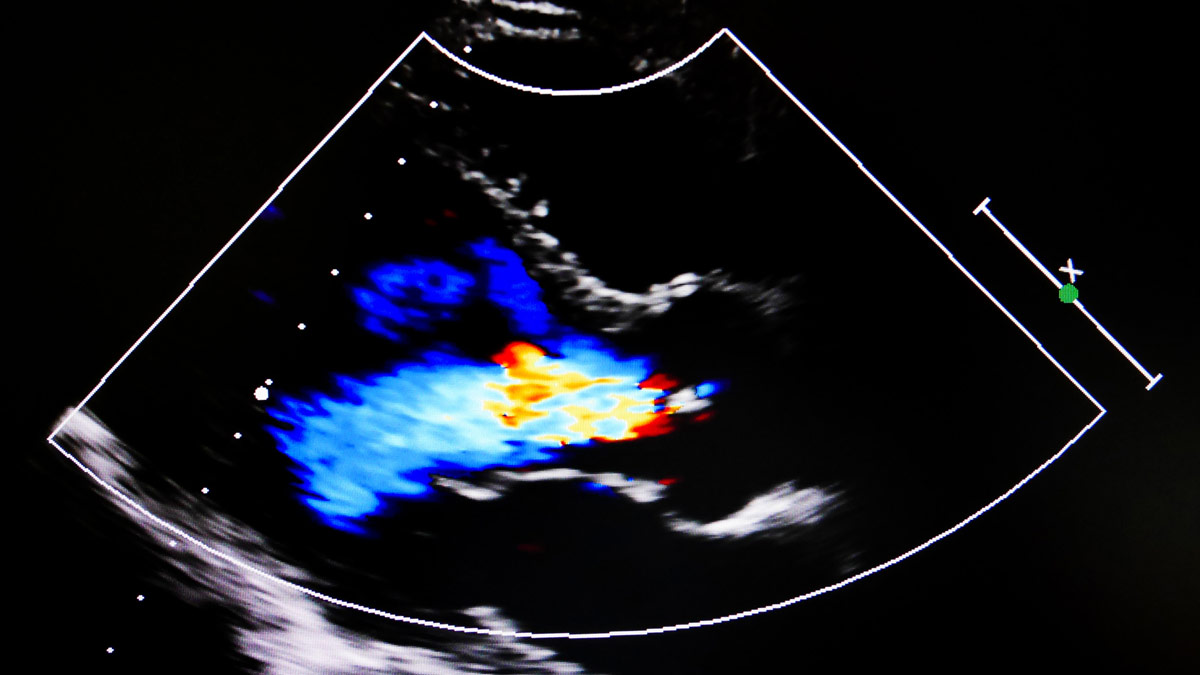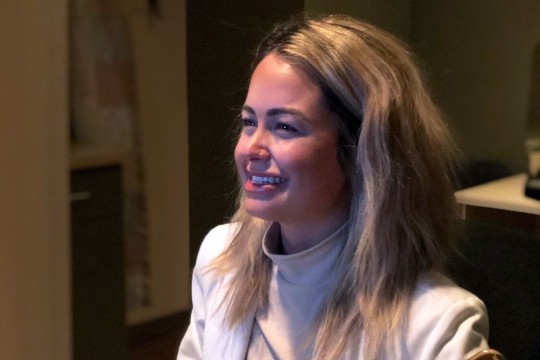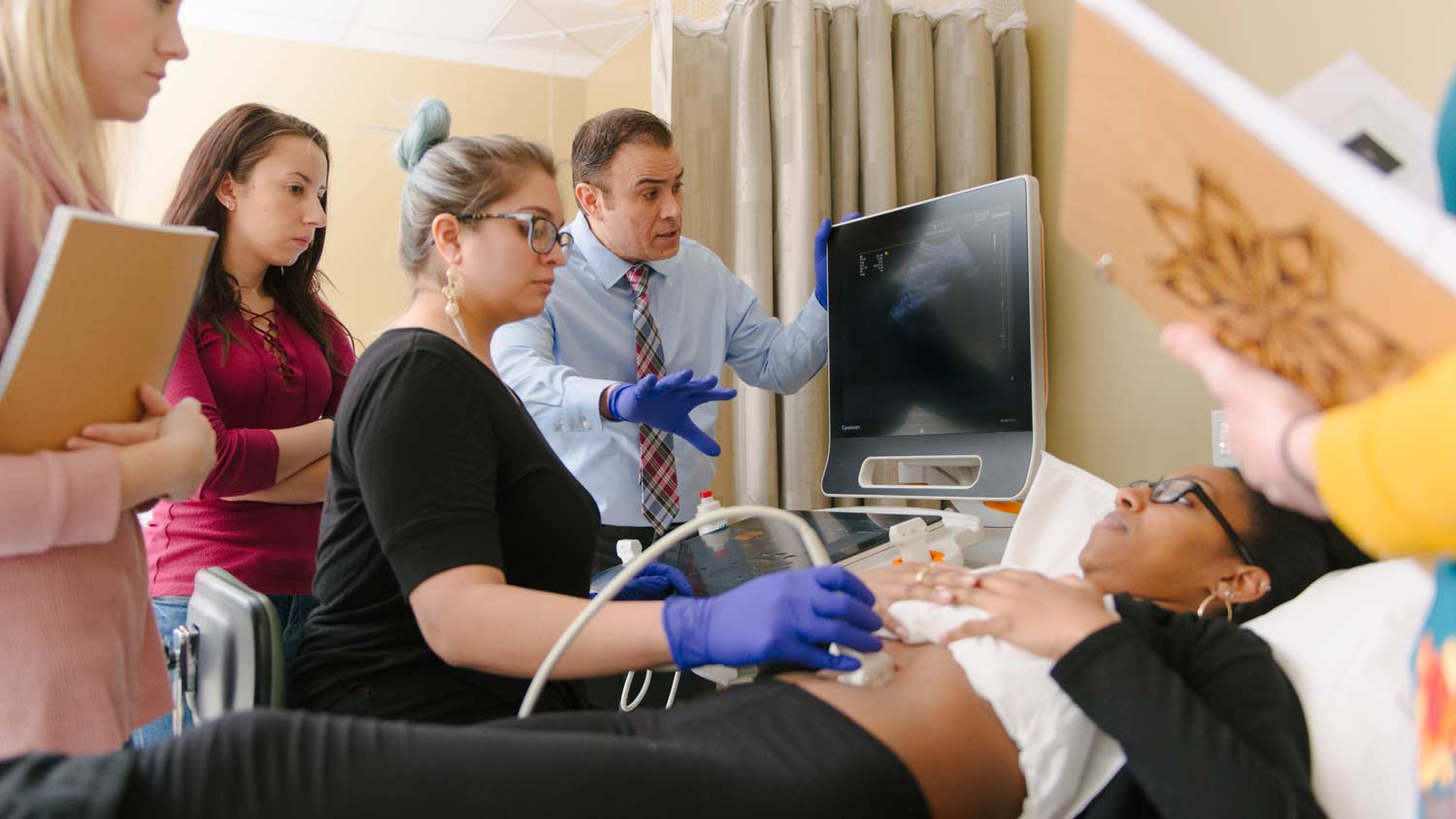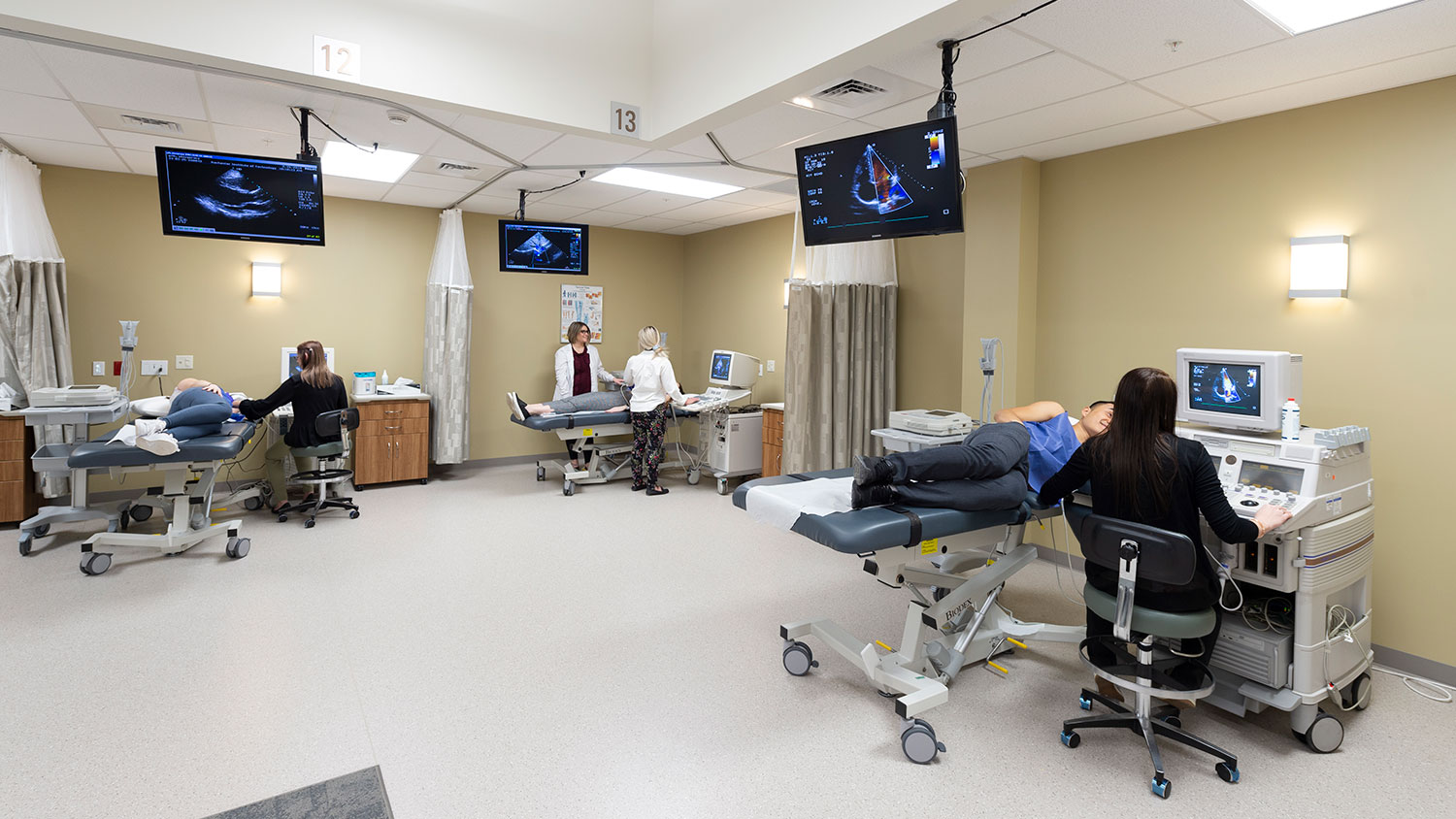Echocardiography (Cardiac Ultrasound) Certificate

Echocardiography (Cardiac Ultrasound)
Certificate
- RIT /
- Rochester Institute of Technology /
- Academics /
- Echocardiography (Cardiac Ultrasound) Certificate
Develop an expertise in examining the heart using ultrasound technology as you gain the skills necessary to excel in this exciting health care field.
Overview for Echocardiography (Cardiac Ultrasound) Certificate
Echocardiography focuses on the evaluation of the heart, its valves and chambers, and associated vessels. The echocardiography certificate produces competent, compassionate, and responsible professionals and leaders who are skilled in ultrasound scanning techniques and the operation of ultrasound instrumentation.
The certificate in echocardiography is an 18-month program that includes a clinical internship. The program, which focuses on the evaluation of the heart, its valves and chambers, and associated vessels, has been designed to exceed the objectives of the Joint Review Committee on Education in Diagnostic Medical Sonography. The program produces competent, compassionate, and responsible echocardiography professionals and leaders. This certificate is available to all registered allied health practitioners as well as those holding an associate or bachelor’s degree in a relevant discipline. The certificate includes lectures and course work integrated with a clinical internship. Dependent on the previous degree, certain prerequisite courses may be required prior to enrollment. Required prerequisite courses include one year of anatomy and physiology with laboratories, one year of college or general physics with laboratories. A patient care course/experience may be required prior to or during enrollment. For more information on the prerequisite courses and completion time, please contact the program director. We will be glad to assist you and provide you with detailed information dependent on your situation.
Graduates earning the certificate will:
- be prepared as competent entry-level adult cardiac sonographers in the cognitive (knowledge), psychomotor (skills), and affective (behavior) learning domains.
- gain a thorough working knowledge of ultrasound scanning techniques;
- be skilled in the operation of ultrasound instrumentation and laboratory equipment;
- acquire the proper manner in working with patients; and
- under the guidance of faculty and professional staff, be capable of scheduling and performing the daily workload of ultrasound procedures, evaluating new procedures where necessary, and supervising other technical personnel.
Plan of Study
During the first academic year, students complete all the prerequisite courses required to enter the clinical internship phase of the program. Students also apply, polish, and test their clinical skills and techniques in the on-campus Ultrasound Scanning Suite, which is equipped with a variety of ultrasound equipment. Following a required two-week pre-clinical internship orientation session, students begin their training at the first of two assigned clinical training sites.
In addition to the echocardiography certificate, RIT also offers a bachelor of science degree and a certificate in diagnostic medical sonography. Both of these options are designed to meet the growing needs of the national and international medical communities.
Careers and Clinical Internships
Clinical Internships
The one-year clinical internship provides hands-on experience at two or more approved medical facilities. After completing the pre-internship course work, all students begin the internship by attending an intensive two-week experience on campus. During this time they enhance and polish the skills they previously learned, prepare to perform complete sonographic examinations as performed in real clinical settings, and advance their knowledge in recognizing anatomy and disease states using a variety of equipment in the Ultrasound Scanning Suite. Students also learn about hospital, departmental, and administrative operations. After completing these requirements, candidates are assigned to a medical training site for their clinical experience. At these facilities, students work side-by-side with sonographers, physicians, and other health care professionals to learn, develop, apply, and sharpen the necessary skills to perform general ultrasound examinations. Students’ clinical progress and performance are closely monitored by the program’s clinical coordinator and program director, who have regular communication and make periodic visits to the clinical internship sites. Additionally, students return to campus each month for three days of lectures, presentations, projects, and testing. Students may complete their clinical internships at any approved regional or national medical ultrasound facility, with approval of the program director.
Curriculum for 2025-2026 for Echocardiography (Cardiac Ultrasound) Certificate
Current Students: See Curriculum Requirements
Admissions and Financial Aid
Transfer Admission
Only transfer students are eligible to apply for this certificate program.
Appropriate associate degree programs for transfer
AS degree in liberal arts with science option; allied health; radiologic technology
Financial Aid and Scholarships
100% of all incoming transfer students receive aid.
RIT’s personalized and comprehensive financial aid program includes scholarships, grants, loans, and campus employment programs. When all these are put to work, your actual cost may be much lower than the published estimated cost of attendance.
Learn more about financial aid and scholarships
Accreditation
Related News
-
May 10, 2021

RIT graduates prepare for careers in healthcare amidst pandemic
Nearly 60 students will graduate this May from the College of Health Sciences and Technology’s clinical programs—physician assistant BS/MS, diagnostic medical sonography BS, and the echocardiography (cardiac ultrasound) certificate program. These students spend the final year of their programs immersed in practical work experience at clinics and hospitals in the region.
-
February 14, 2020

Carestream Health donates $1.2 million in ultrasound equipment to RIT
Carestream Health Inc. continues to support the education of sonographers at RIT through a new donation of ultrasound equipment valued at more than $1.2 million. This is the second donation Carestream has made during this academic year to RIT’s diagnostic medical sonography program, with a combined total exceeding $1.4 million.
-
February 14, 2020

Student Spotlight: On Valentine’s Day, student sees the heart as an everyday calling
Some may see the heart as a symbol of love on Valentine’s Day. Shelby Gilbert, a second-year echocardiography student, sees it as a profession.
Contact
- Hamad Ghazle
- Professor and Department Head, Clinical Health Professions
- Dean’s Office
- College of Health Sciences and Technology
- 585‑475‑2241
- hhgscl@rit.edu












